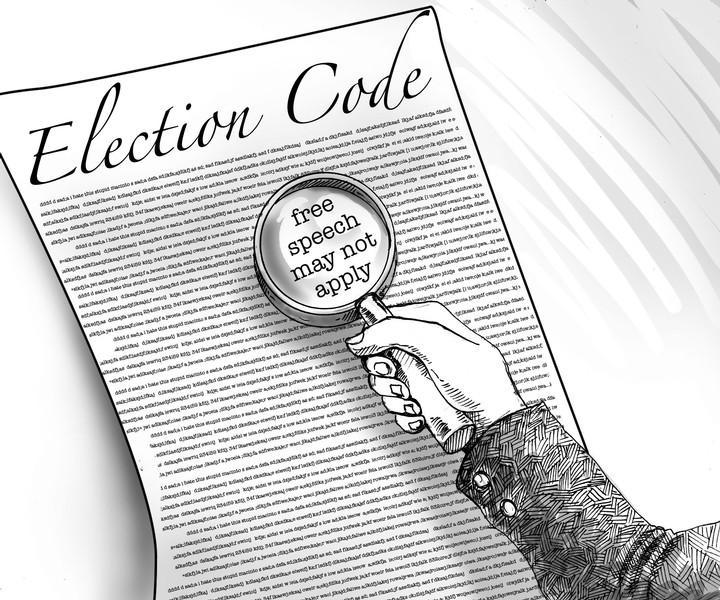Last Thursday The Daily Reveille chose to pull a story that would have run on the front page. The reason behind this decision had nothing to do with the accuracy of the story or any late-breaking developments. In this case The Daily Reveille did not publish an article because of Student Government’s Election Code.
The story, which appears on the front page of today’s paper, contained an account of last Wednesday’s seven-hour-long Student Senate meeting, a meeting which had as its primary business the consideration of three separate student-assessed fee increases for The Daily Reveille, Tiger TV and KLSU.
The Student Media entities needed the Student Senate to approve the fee increases before they could be placed on the spring 2005 election ballot.
The Daily Reveille’s bill passed, although narrowly, while Tiger TV and KLSU were not as fortunate. They are now trying to get their fees on the ballot by petition.
But they may have been better off.
Under the current SG Election Code, The Daily Reveille qualified as a candidate for the election with its referrendum’s passage, making it subject to the same rules as individual candidates.
The Election Code strictly forbids announcement of candidacy in a public forum, but allows candidates to talk about the their tickets in private. By publishing the article, The Daily Reveille would have been announcing its candidacy in a public forum.
This blatant suppression of free speech and the potential assault on our function as an independent media outlet shocked us into the realization of just how extreme the restrictions on campaigning for SG elections are.
In a written opinion, University Court Chief Justice Neal Hebert said that by reporting that the Senate passed the fee referendum, the paper was effectively notifying the public of its candidacy and could be disqualified.
“One could cite freedom of the press and call it a day, since one would think that the Constitution supercedes the election code,” Hebert said in an e-mail. “Freedom of the Press is superceded in this instance by the submission of the referenda to the Student Senate: by requesting a fee increase and requesting to be a candidate in the upcoming election, you have tacitly agreed to follow the rules specified in the Election Code.”
The code restricts active campaigning to a month before election. Anyone who announces his candidacy prematurely or tries to drum up support for his ticket could face judicial action and possible removal from the ballot.
Reluctantly, we withdrew this story until the beginning of active campaigning, which is today.
While we can understand the need for a certain amount of restrictions on campaigning, such as a cap on spending to allow a level playing field, we cannot understand the compelling interest in not allowing students to announce their candidacy or to campaign whenever they choose to start.
Indeed, the fact that most tickets are formed (in secret) months before the start of the election tends to make the whole idea of restricting campaigns impractical.
This causes us to wonder, why does the election code penalize those who have fewer connections than most traditional candidates and are unable to find a place on tickets that are, due to regulations, unable to advertise for candidates.
This code keeps SG from opening itself up to those who it claims to represent but never seems to attract.
We have no animosity toward SG for trying to enforce its regulations and expand access for students. We recognize that the Election Code, as with all law, is a work in progress, having been updated only last year due to the new online voting system. However, as it is a work in progress, it must be altered once more in order to protect the rights of students to actually speak their mind.
While it is impossible to change the Election Code for this election, we know that the code is under review by a committee that Hebert said is revising the restrictions on candidate’s public announcements. Although this is a step in the right direction, until SG eliminates all restrictions on free speech, it will continue to exclude students who do not have an “in” into the system.
The Daily Reveille Editorial Board is: Scott L. Sternberg, Editor-in-Chief; Mark F. Bonner, Managing Editor; Ryan Merryman, Opinion Editor; Dorothy E. Paul, Online Editor; Jason Dore’, Columnist.
The Editorial Board produces weekly editorials written by the Opinion Editor which express the views of the Editorial Board. However, the opinions of the board do not necessarily reflect the viewpoints of The Daily Reveille’s staff.
This editorial was written by the editorial board of The Daily Reveille. The views expressed are those of the board and do not reflect the views of the entire staff.
Matter of Principle
March 3, 2005




